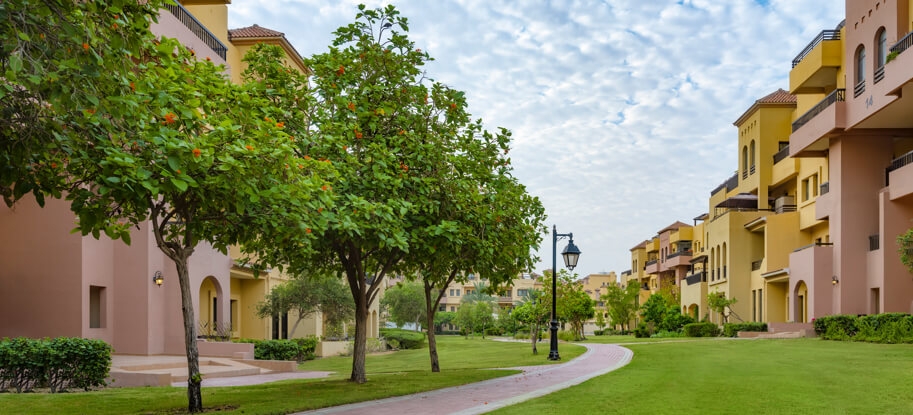Key Trends Shaping The Dubai Rental Property Market

These are interesting times for the rental real estate sector in Dubai – marked by strong customer-focused trends, upgrades, investment in innovation and technology, greater demand for corporate housing and an increasing preference for community living.
According to the Dubai Statistics Centre (DSC), the population of Dubai has grown from approximately 860,000 in 2000 to 3.1 million in 2018. Dubai has also seen total households grow from approximately 156,000 in 2000 to approximately 560,000 in 2018. Such growth continues to drive demand for housing, with net additional demand between 2018 to 2035 forecast to be approximately 176,000 additional households, according to a report titled ‘Middle East Real Estate Predictions: Dubai 2019’ by global consultancy Deloitte.
With the long-term prospects firmly secured, the current softening has allowed for developers and landlords to inject some action by introducing innovative payment plans, focus more on customer delivery as well as enhancing all aspects of the customer lifecycle.
As the owner and manager of one of the city’s largest portfolios of rental residential communities, Dubai Asset Management identifies the key trends that have shaped the rental real estate sector in the emirate.
Increasing demand for community living
Happy communities have a significant impact on the quality of our lives and overall well-being as they provide something that is vital to each and every one of us – a sense of belonging. Research shows that there are numerous health and emotional benefits from having a strong local network and being connected to where you live.
Attracting and retaining high-quality tenants is key to the success of a landlord. Just like with any business, location has a big impact on revenue. Tenants typically look for a property that is close to their employment, as well as other conveniences such as grocery stores, restaurants, community parks, schools and ample available parking. A safe and secure community environment is also a powerful motivator for residents. A holistic residential community is defined by the convenience, comfort and feeling of home it offers residents. From design and development and upgrading offerings to ensuring the utmost comfort and convenience of the residents, all the way to seamless property management, operations and maintenance, the entire process intends to enhance efficiencies and create value for the business and customers.
Ideal housing units are those that ensure optimal space utilisation, complemented by outdoor recreational areas and landscaped green spaces, providing comfort within and outside the home, complemented by services such as in-house property management and 24-hour security. The community feel is amplified by an annual calendar of activities that engages residents and creates a sense of belonging.
Growing focus on corporate housing
In a country that has long been home to a vast number of expatriates from close to 200 nationalities, housing is an essential factor in attracting and retaining talent, whether it is millennials who are starting off their career, or families looking for a community living experience and neighbourhood feel or global citizens exploring job opportunities in Dubai until they move to their next destination. Corporate housing is an evolving concept, and while it is not on every company’s list of priorities, it does remain an attractive benefit for and an integral tool to drive employee well-being and happiness.
In light of Dubai’s new immigration laws, companies aiming to bring highly qualified global talent to the emirate could sweeten the deal by providing appropriate relocation infrastructure, of which housing is almost always seen as a priority. A report by the World Economic Forum, for example, explains that while millennials form the majority of the global working population – more so in the Middle East – they are spending more on housing than any previous generation, and as a result are falling short on spending on their general quality of life.
Moving for bigger and better
As the rental market is changing, residents are using this opportunity to upgrade their lifestyle and living conditions by moving to bigger and better accommodation. Tenants are abandoning cramped apartments and bed spaces to move into more spacious homes at a more affordable cost. Upsizing is a keen trend being witnessed in the business and it’s mainly because landlords are realising that they’re better off lowering their asking prices than keeping an empty house.
Short-term rentals revive market
Lately, Dubai has seen a high uptake in holiday home rentals, driven mainly by a conducive legislative environment and a growing need for flexibility and choice as the city continues to attract global talent and consolidate its status as a premier tourist destination.
A recent report revealed that holiday homes in Dubai account for two percent of the total number of households – the highest proportion of all key global hub cities. As the emirate gears up to welcome over 17 million international visitors to Expo 2020 and targets 25 million visitors by 2025, the demand for short-term rentals is on the rise.
Smart solutions for better impact
The future of real estate will be greatly impacted by AI, blockchain and IoT. For instance, Artificial Intelligence can help customers have more accessibility across various touchpoints while reducing costs. This will come further into play with digital marketing, chatbots and speechenabled interactions. Earlier this year, Dubai Asset Management announced the rollout of phase one of the first fully digital and paperless property rental experience in partnership with Smart Dubai. The smart solution is accessible via DubaiNow, a comprehensive platform available as a website and a mobile app that integrates the services of government and private sector partners. The company’s fully integrated customer experience allows tenants to browse through the company’s portfolio and complete five essential services online. These include finding a home, registering and signing the tenancy contract, arranging Dubai Electricity and Water Authority (DEWA) utility services, signing up for a landline, cable TV and home Internet services with telecom company du, and raising maintenance requests.
Investment in research for greater customer delivery
Dubai Asset Management identifies customer needs and measures resident satisfaction through conducting regular surveys across each touchpoint to engage residents and gain first-hand insights. The company then works on the areas of improvement to match the residents’ expectations and enhance the living experience. At Dubai Asset Management, the focus is to analyse business and customer data to enable a better understanding of customer preferences and what drives value for the end-user. The data is complemented with timely market insights to make impactful decisions. It is key for enterprises to better understand their customer and the market in order to meet their needs and offer them the most convenient and enriched community living experience. Globally, companies are endeavouring to reduce customer effort and customise service delivery to cater to a large and varied customer base.

